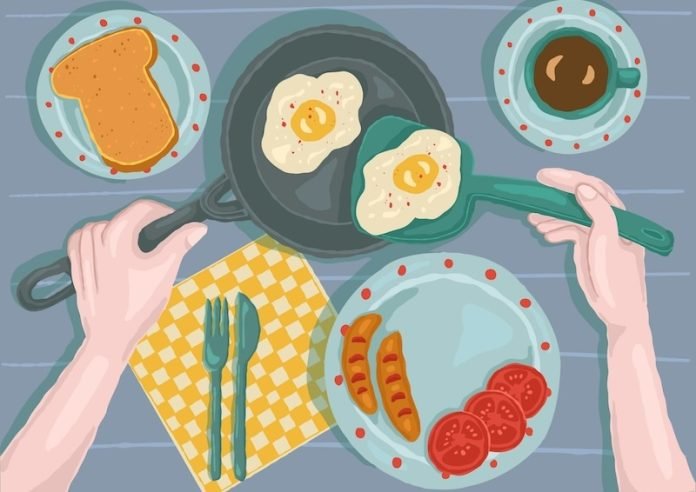
Managing high blood pressure is crucial for long-term health, as it reduces the risk of heart disease and stroke.
What you eat, especially at the start of the day, can have a significant impact on your blood pressure levels throughout the day.
This article reviews the best breakfast foods that have been shown to help lower blood pressure, presented in an easy-to-understand manner.
Oats are a stellar start to any day for those monitoring their blood pressure. Oats contain a type of fiber known as beta-glucan, which has been extensively studied for its effects on lowering cholesterol and stabilizing blood pressure.
A bowl of oatmeal can help maintain a healthy artery function, which is vital for keeping blood pressure levels in check. Studies suggest that regular consumption of oats leads to consistent reductions in both systolic and diastolic blood pressure.
Berries, such as blueberries, strawberries, and raspberries, are rich in natural compounds called flavonoids. Research has linked these natural compounds with lower blood pressure because they improve endothelial function, which refers to how well the blood vessels can expand and contract as needed.
Adding berries to your morning routine can be as simple as tossing a handful into your oatmeal or yogurt, giving you a delicious and powerful start to your day.
Yogurt and milk are great sources of calcium and potassium, which are key minerals that help manage blood pressure. Potassium, in particular, helps balance the amount of sodium in your cells, and not getting enough potassium can lead to high blood pressure.
A study published in the American Journal of Clinical Nutrition found that low-fat yogurt, when consumed regularly, was associated with better blood pressure control.
For breakfast, incorporating a serving of yogurt or using milk in your cereal can contribute to a healthier blood pressure reading.
Seeds, such as flaxseeds, chia seeds, and hemp seeds, pack a punch when it comes to nutrients that help regulate blood pressure including potassium, magnesium, and fiber.
Flaxseeds, in particular, are also rich in alpha-linolenic acid, a type of omega-3 fatty acid, which has been shown to improve arterial function and reduce arterial stiffness. Sprinkling these seeds over your breakfast bowl or smoothie can add texture and health benefits.
Whole grain products, like whole grain bread or high-fiber cereals, are another excellent breakfast choice for those looking to lower their blood pressure. Whole grains help in maintaining a healthy body weight and have been shown to improve blood pressure levels.
Choosing a cereal that is low in sugar and high in fiber can be particularly beneficial. A study noted that consuming three servings of whole grains daily was associated with a reduction in systolic blood pressure.
Nuts, particularly pistachios, have been studied for their effects on blood pressure. They are a good source of healthy fats, protein, and fiber, which are all important for heart health.
Pistachios, in particular, stand out because they help reduce peripheral vascular resistance, which can help lower blood pressure. Adding a handful of nuts to your breakfast or incorporating them into other dishes can make a nutritious addition to a blood pressure-friendly diet.
In summary, starting the day with a breakfast that includes oats, berries, yogurt, seeds, whole grains, and nuts can significantly impact your blood pressure in a positive way.
These foods not only help lower blood pressure but also provide sustained energy, making them an ideal choice for a healthy morning meal. Regularly incorporating these foods into your breakfast routine can help manage blood pressure naturally and deliciously.
If you care about high blood pressure, please read studies that drinking tea could help lower blood pressure, and early time-restricted eating could help improve blood pressure.
For more health information, please see recent studies about added sugar in your diet linked to higher blood pressure, and results showing vitamin D could improve blood pressure in people with diabetes.
Copyright © 2024 Knowridge Science Report. All rights reserved.



